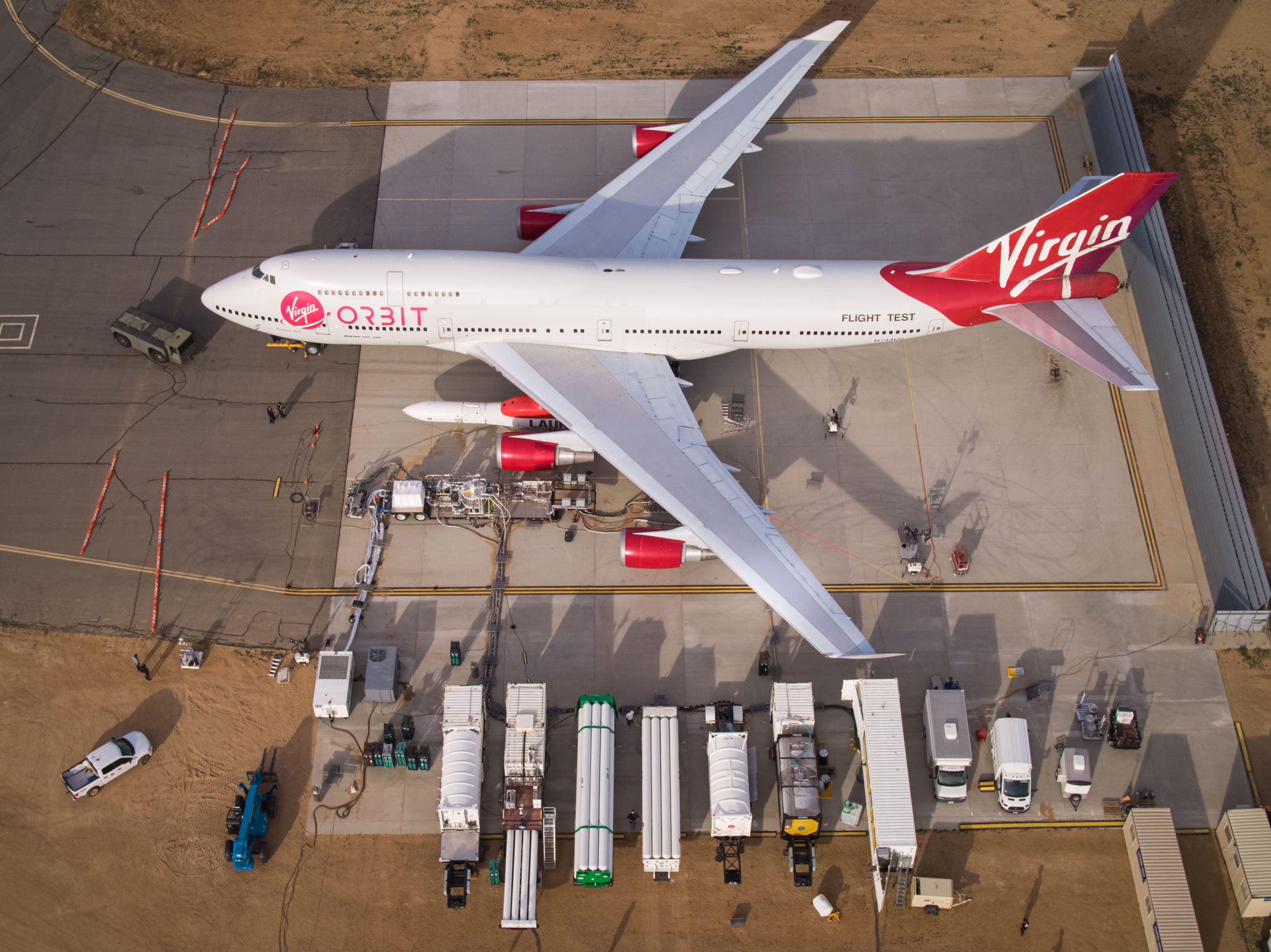Virgin Orbit Files for Chapter 11 Bankruptcy

Virgin Orbit’s Cosmic Girl plane ahead of the Jan. 13 launch “Above the Clouds.” Photo: Virgin Orbit
Virgin Orbit has filed for Chapter 11 bankruptcy after the company was unable to secure new funding. The smallsat launcher said in an April 4 statement that it intends to use the Chapter 11 process to maximize value for its business and assets.
The smallsat launcher has funding troubles, and reported last week it was unable to secure new funding and was laying off most of its workforce, about 675 employees. Various outlets reported a deal with venture capital investor Matthew Brown fell through. The last time Virgin reported financial results at the end of the third quarter in 2022, it had just $71.2 million in cash, after spending $45 million during the third quarter. In addition, it recently suffered its first launch failure in the first mission from the United Kingdom.
“While we have taken great efforts to address our financial position and secure additional financing, we ultimately must do what is best for the business. We believe that the cutting-edge launch technology that this team has created will have wide appeal to buyers as we continue in the process to sell the company,” said CEO Dan Hart. Orbit.
The company filed for Chapter 11 in the United States Bankruptcy Court for the District of Delaware on April 4.
According to court documents, the company listed about $243 million in assets and $153 million in debts. Arqit Ltd. is Virgin Orbit’s largest creditor, with a claim of just under $10 million. The U.S. Space Force has a claim of $6.8 million, and iQPS, Inc. has a claim of $5.2 million. Other creditors include Bibgbear.AI, All Nippon Airways, Redwire, Spire, and Spaceflight.
Virgin Orbit was founded in 2017, spun out of human spaceflight company Virgin Galactic, then owned by Richard Branson’s Virgin Group and Aabar Investments PJS. Virgin Galactic is still operational and recently confirmed it is on track to start commercial service in the second quarter of this year.
Virgin Orbit made history by validating LauncherOne, the first orbital class, air-launched, liquid-fueled rocket to successfully reach space. In the air launch system, a modified jet carrying the LauncherOne rocket takes off from a standard airplane runway. The rocket is then dropped from the jet in air, and proceeds to ignite and complete its mission. This method is fairly unique in the launch industry and otherwise only used by Northrop Grumman’s Pegasus launch vehicle.
The company had four successful missions, deploying 33 satellites, for customers including the U.S. Department of Defense, NASA, SatRevolution, and Spire. It also had plans to expand launch service and commercial spaceports around the globe, with agreements in place in Australia, Brazil, Japan, and South Korea.
Virgin Orbit then went public at the start of 2022 in the wave of special purpose acquisition company (SPAC) mergers. But the company came away with far less cash from the deal than it had projected.
The company’s stock slid after the January launch failure that was supposed to be a slew of firsts: the first orbital satellite launch from the U.K., the first commercial orbital launch from western Europe, and Virgin Orbit’s first international launch.
CEO Hart expressed pride in the company’s team in a statement.
“I’m incredibly grateful and proud of every one of our teammates, both for the pioneering spirit of innovation they’ve embodied and for their patience and professionalism as we’ve managed through this difficult time. Today my thoughts and concerns are with the many talented teammates and friends now finding their way forward who have been committed to the mission and promise of all that Virgin Orbit represents,” Hart said.